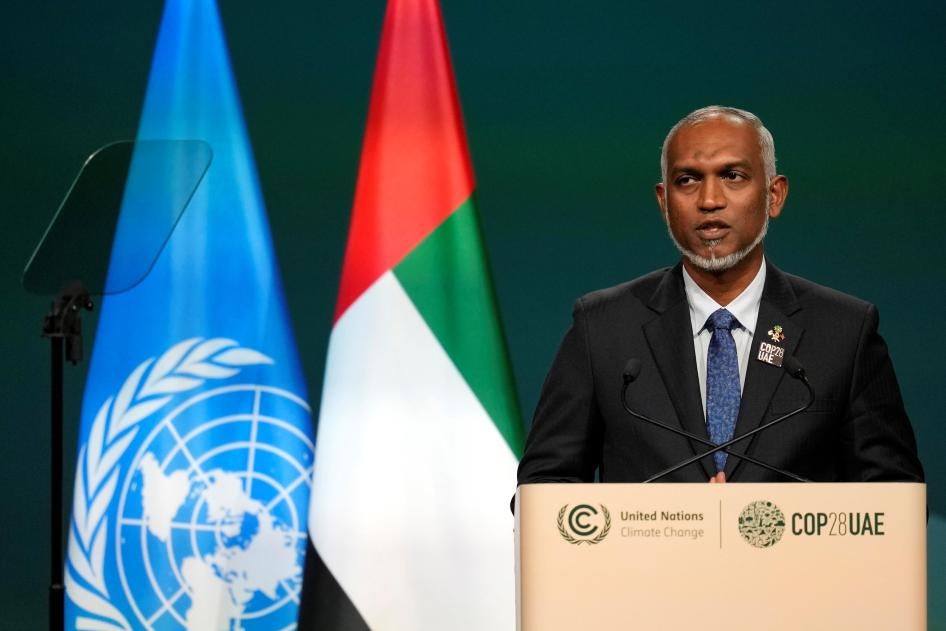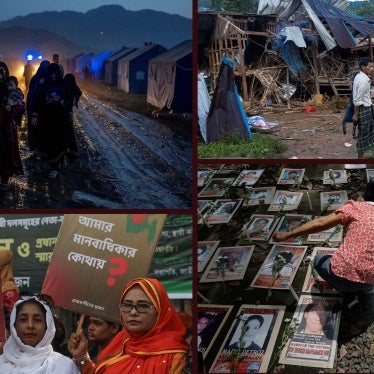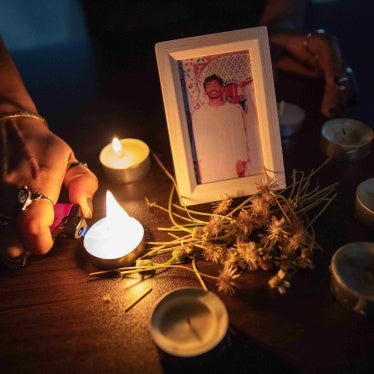(Bangkok) – The Maldives government increasingly violated the rights to freedom of expression and assembly ahead of the September 2023 presidential elections, with the security forces using excessive force against protesters and journalists covering demonstrations, Human Rights Watch said today in its World Report 2024. Mohamed Muizzu won the presidential election after a runoff on September 30, and promptly secured the release from prison of the former president, Abdulla Yameen, who had been convicted of corruption in 2022.
“President Muizzu promised to curb corruption and ensure the independence of the judiciary, but it’s hard to have confidence in such promises when his first act was to release former president Yameen from prison,” said Patricia Gossman, associate Asia director at Human Rights Watch. “His government should focus on improving the justice system, supporting free expression, and protecting Maldives island communities from reckless development projects.”
In the 740-page World Report 2024, its 34th edition, Human Rights Watch reviews human rights practices in more than 100 countries. In her introductory essay, Executive Director Tirana Hassan says that 2023 was a consequential year not only for human rights suppression and wartime atrocities but also for selective government outrage and transactional diplomacy that carried profound costs for the rights of those not in on the deal. But she says there were also signs of hope, showing the possibility of a different path, and calls on governments to consistently uphold their human rights obligations.
The Maldives has been a strong voice in international forums on climate-related issues. But the government’s domestic environmental policies have long belied its call for global action on climate change, as they have undermined or bypassed key environmental protection measures in pursuit of tourism and infrastructure development projects, resulting in significant environmental harm. Ignoring the country’s environmental protection laws increases flooding risks and the risk of other harm to island communities. President Muizzu has expressed skepticism about the threat that climate change poses to the Maldives and has called for increased land reclamation projects even though these have exacerbated erosion in islands already at risk from rising sea levels and extreme weather events.
Human rights defenders, LGBT rights activists, and civil society organizations faced intimidation and threats on social media, often from Islamist extremist groups. The Maldivian government has a history of giving in to the demands of these groups. On March 28, the Maldives civil court upheld a December 2019 decision to deregister a human rights organization, the Maldivian Democracy Network. At the United Nations Human Rights Council in March, a UN special rapporteur said that Maldivian women human rights defenders were increasingly vulnerable to online harassment and intimidation.
The Evidence Act, under which courts can compel journalists to reveal their sources, remained in effect despite promises that it would be amended. Investigations into the deaths of journalist Ahmed Rilwan in 2014 and blogger Yameen Rasheed in 2017 made little progress, even as the mandate of the Commission on Deaths and Disappearances, established under the previous government to investigate these and other killings, was set to expire at the end of 2023. Two suspects in the cases were acquitted after closed-door trials.









